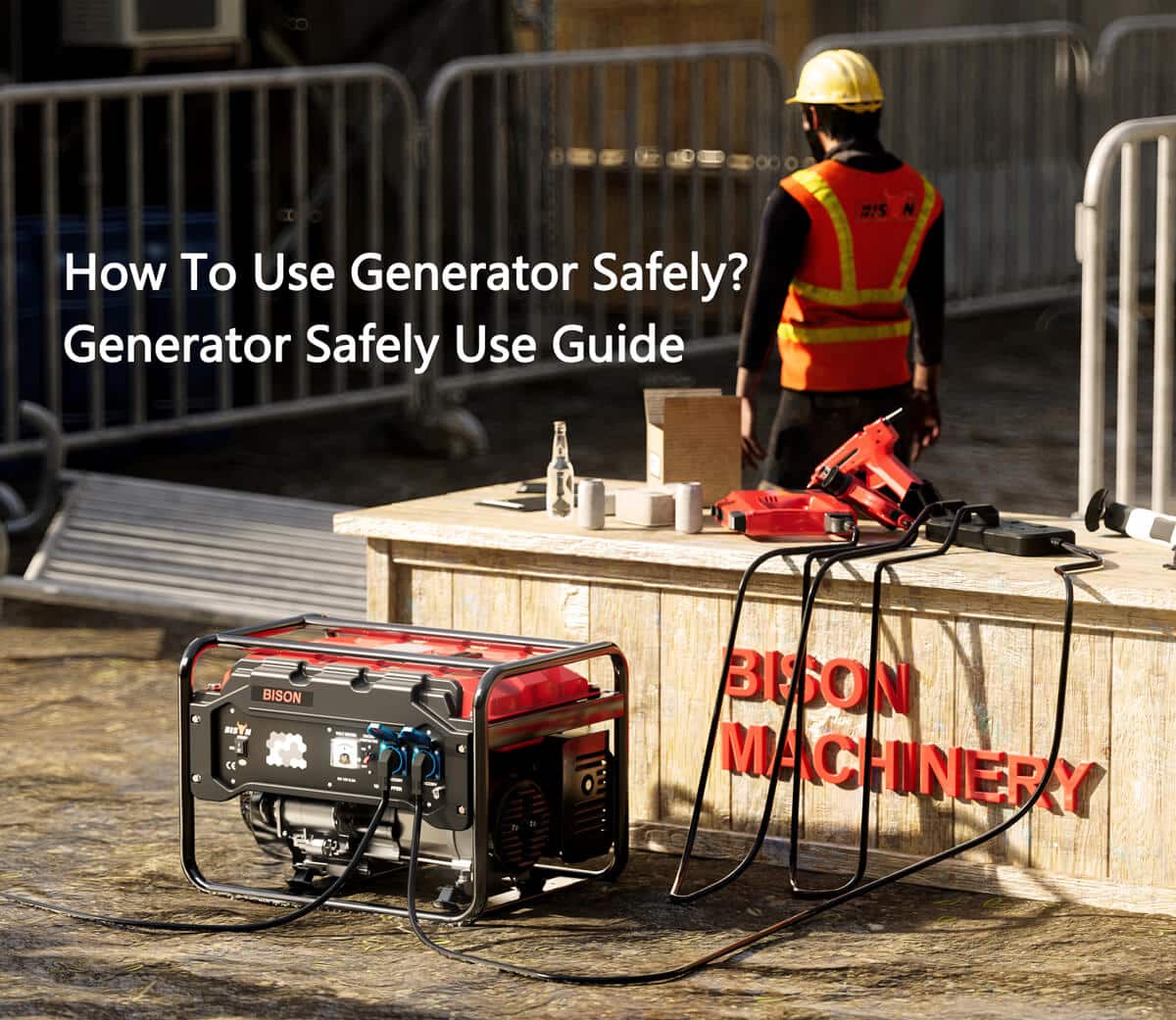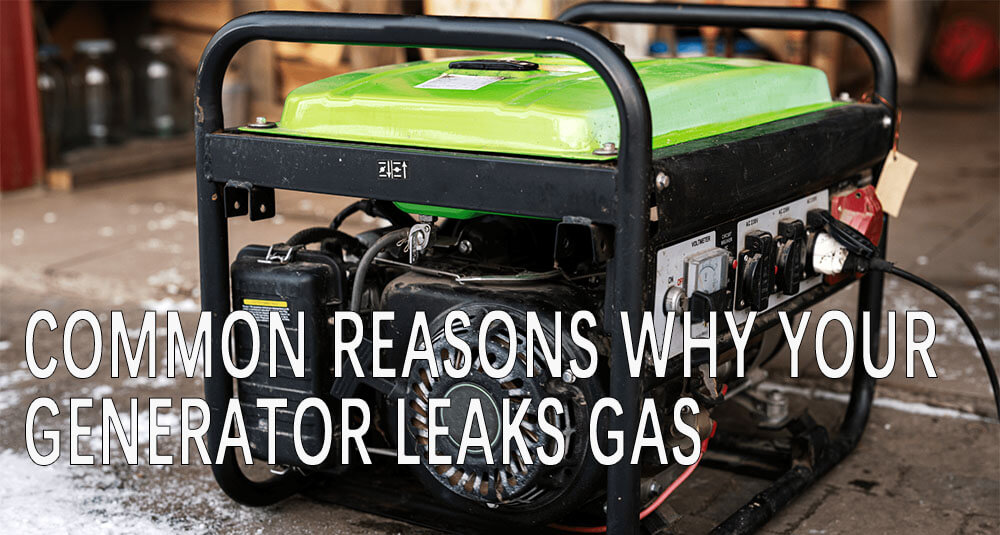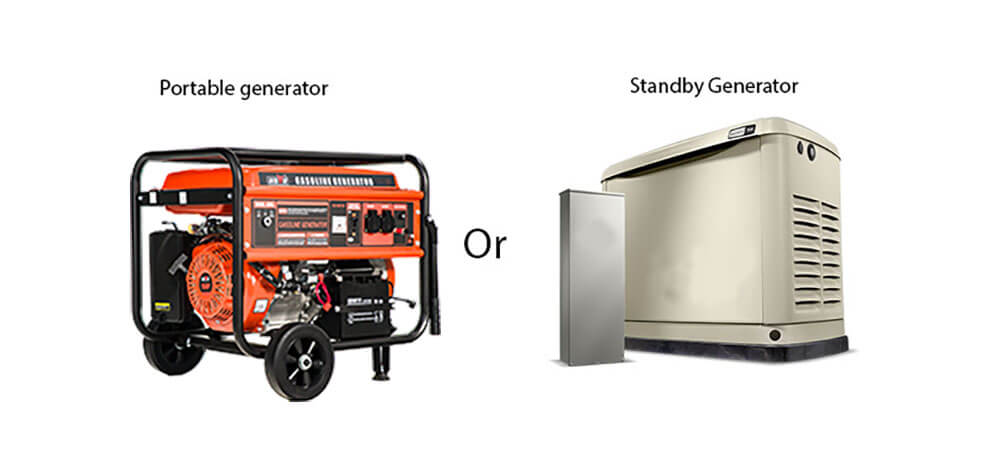How to Use Generator Safely–Generator Safely Use Guide
- By BISON
Table of Contents
Whether you use it professionally at home, in a commercial setting, or for recreational activities at a campground, a generator can be a very useful tool. It is worth noting that for every type of engine-driven machine, there are hazards involved in its operation. This safety guide is designed to give you a quick overview of the main safety issues when using generators and to minimize the risks involved in their use.

Common hazards associated with generator use
There are three main safety issues when dealing with generators. BISON will look at each of these three hazards in turn and provide the safety information you need to minimize these risks.
Carbon Monoxide Poisoning
By far the most serious hazard involved in the use of generators is carbon monoxide poisoning (CO). Every year, people die from carbon monoxide poisoning due to improper use of generators. A generator, like many machines with engines running, will quickly produce large amounts of carbon monoxide. It has no smell at all, and you can’t see the gas.
If you start to feel sick while using the generator, go outside into the fresh air immediately. Symptoms of carbon monoxide poisoning include feeling dizzy, nauseous or weak, however this can quickly turn to incapacitation and then death.
Electrical hazards and electrocution
Generators are designed to put out a lot of power when you need it, but if your generator has been damaged or you’re not using it properly, the power output could be in places it shouldn’t be – and could hurt you or those around you. Only allow a qualified electrician to install the generator to your main power supply via a transfer switch. This is an easy job for a qualified electrician, but very dangerous for you to attempt on your own.
Fire and explosion hazards
Although unlikely, a generator is essentially a liquid fuel-powered engine with a fuel tank on top – if your generator is damaged or you use it improperly, there is a risk of the fuel igniting.
Precautions Before Using a Generator
Proper Installation and Placement: Never use a generator indoors
Never run a generator in your home, garage, cellar, shed, cabin, tent or any other enclosed area. Even partially open, ventilated areas can accumulate carbon monoxide – opening windows and doors or using fans does not
- Follow the instructions that came with your generator
- Locate the unit outside, away from any doors, windows and vents
- Have a carbon monoxide alarm with a battery backup for your home or workplace
- Test your carbon monoxide alarm frequently and replace the batteries as required
Reading the User Manual
The user manual provides specific instructions for each generator model, including safety precautions, maintenance, and troubleshooting.
- Electrical Safety: Never attach a generator directly to the electrical system of a structure. Always ensure your hands are dry before touching the generator.
- Weather Precautions: Make sure to place your generator in a dry environment. Use a generator cover or canopy to protect it during wet conditions.
- General Safety: Keep children and pets away from the generator. Provide hearing protection if necessary.
Understanding Power Capacity
Knowing your generator’s wattage is essential to avoid overloading it. If you cannot plug an appliance directly into the generator, use a heavy-duty, outdoor-rated extension cord. Make sure your cord is rated in amps or watts over the total load of the connected appliance (including any starting requirements). Visually inspect the cord for breaks or cuts. Make sure that all three pins of the plug (especially the ground) are undamaged.
Safety Tips During Operation
Operating a generator safely is crucial to avoid accidents and potential hazards. Here are several key safety tips during operation:
- Proper Fuel: Use only the type of fuel recommended by the manufacturer. Using the wrong fuel can damage the generator and potentially cause a fire.
- Never refuel a hot generator: Before refueling a depleted generator tank, make sure the entire generator has had a chance to cool down. Turn it off and leave it for at least one hour. Spilled fuel can ignite on a hot engine.
- Fuel Storage: Whether your generator uses gasoline, diesel or LPG, you should not store it in your home. Keep flammable fuels outside of your living space and properly labeled in a proper secure container. Do not keep your fuel near appliances that burn fuel, such as a heater in your garage. If your fuel is not properly sealed, vapors can slowly escape and build up. This vapor can be ignited by a test light or even an electrical arc from an appliance switch.
- Warning Signs of Potential Problems: Pay attention to warning signs like unusual noises, excessive vibration, visible damage or leaks, and electrical output fluctuations. If you notice any of these signs, turn off the generator and have it inspected by a professional.
Choose a Safe Generator
Of course, you can also choose a safer generator. The following are the key safety features possessed by BISON generators:
- Auto Shutoff: This feature shuts down the generator when it detects problems such as low oil level or overload. This prevents damage to the generator and any connected equipment.
- Carbon Monoxide (CO) Detection: Some modern generators are equipped with a built-in carbon monoxide detector that shuts down the unit if carbon monoxide levels reach dangerously high levels.
- Ground Fault Circuit Interrupter (GFCI) Outlets: These outlets protect users from electrical shock by automatically cutting off power if they detect an imbalance between input and output current.
- Weatherproof protection: Look for generators that have weatherproof outlets and are designed to resist water damage.
- Transfer Switch: For backup generators, a transfer switch is essential for safety. It prevents power from being fed back into the grid, which can be dangerous to utility workers and can damage your generator.
in conclusion

Safety should always be your top priority when using a generator. If you have any questions or concerns, don’t hesitate to seek BISON professional help. If you need further assistance or have any queries, feel free to contact us. Your safety is our utmost concern.
Most Popular Posts
QUESTIONS?
CONTACT US TODAY.
buy?
Related Posts

diesel generator components
BISON will explore the key components of diesel generators and understand how each part contributes to their overall performance and reliability.

Common reasons why your generator leaks gasoline
In this guide, BISON covers common causes of gasoline leaks, warning signs to watch for, and how to fix the issue.

portable or standby generators: which one fits your needs?
This article by BISON breaks down the differences between portable and standby generators. By the end, you’ll find which one fits your needs best.
.png)
-qbpqbzxxvtguiuwezisu6wo6j1i29b4m1el1ir1u8o.png)

